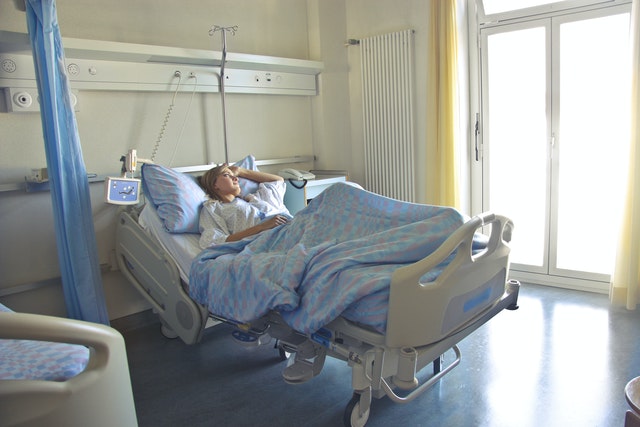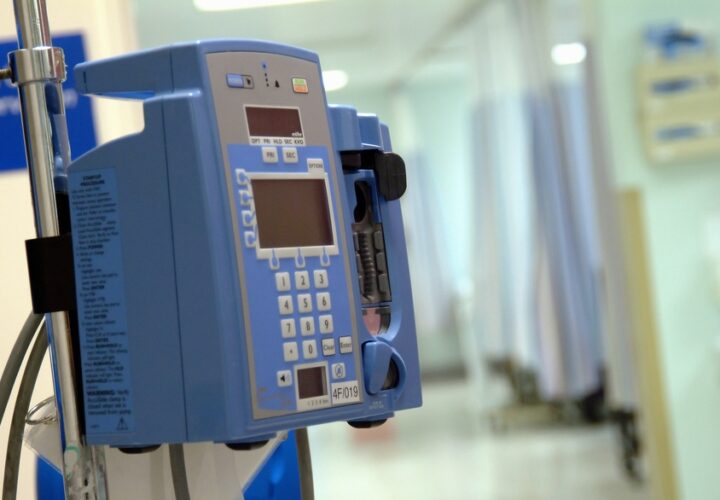As COVID-19 spreads, the risk of the elderly and people with dementia being hospitalized for the disease increases—not to mention all the other medical issues that may arise during the pandemic that could lead to hospitalization. When hospitalized, anyone is at risk of developing what’s known as delirium, but it’s especially likely for people with mild cognitive impairment (MCI) or dementia.
Being Patient spoke with Dr. Jason Karlawish, a professor of medicine at the University of Pennsylvania, about what delirium is, why people with dementia are at a higher risk for developing it and what steps caregivers should take to prepare.
- Delirium refers to a confused state caused by a variety of factors, which can cause agitation and delusions.
- Delirium can develop in a hospital or at home, but has a higher chance of occurring among people with dementia.
What is Delirium?
Being Patient: What is delirium exactly?
Dr. Jason Karlawish: Delirium describes an acute confusional state. Simply put, the person doesn’t seem like the way they used to be, there’s been some sort of change. Delirium can take two forms. We’ve got the hyperactive form, where the patient is quite agitated, confused, often times physically agitated. Or in the hypoactive form, the patient is sort of quiet, withdrawn. A common feature in delirium, a key word, is inattentive. They’re not paying attention like they used to.
Being Patient: Why does delirium occur? How is it connected to hospitals?
Dr. Jason Karlawish: Delirium occurs because a person’s brain has been acutely insulted by an illness, bad enough that they may require going to a hospital. So delirium is sort of a product of many different factors coming together: an aging brain, one that’s acutely ill; going to a hospital, a changing environment; a host of other changes, a host of other noxious stimuli to the brain from some of the medications that are given.
What all that adds up to is an acute confusional state that develops, which we call delirium. So for example, you can get delirious if you’re ill and at home. It doesn’t have to be at a hospital, but there’s something about hospitalization that makes it even more likely to occur.
Being Patient: A lot of people not in the medical field associate delirium with hallucinations. Is that accurate?
Dr. Jason Karlawish: Well, there’s a certain wisdom to that vernacular understanding when people say “You’re delirious,” meaning that there’s something very different about the way they’re acting now, compared to the way they usually act. And in the hyperactive, agitated form of delirium, patients often develop elaborate and very frightening delusions.
A common one will be that they think they’re in prison or in jail, and will cry out for help to get them out. They’ll construct elaborate delusions about where they are, and often involve very persecutory beliefs and things like that, and they can become very physically agitated, attempting to get out of bed and out into the hallway.
Another key feature of delirium is that it waxes and wanes, so a patient can be very agitated, and then an hour or two later everything’s fine, and then another hour or two later they’re agitated again. So these sort of waxing and waning qualities are kind of the hallmark of delirium syndrome.
Why is Delirium Dangerous and How Does it Relate to Dementia?
Being Patient: Are people with dementia at more risk of delirium?
Dr. Jason Karlawish: Absolutely. Persons living with dementia are at greater risk than someone at the same age who doesn’t have dementia to develop delirium. The way I kind of think about it is that delirium is to Alzheimer’s and dementia like pain is to cancer. There are many different diseases that cause pain, but like we all know there’s something about cancer that has a unique pain experience, and cancer is also more likely to cause pain.
And that’s the same sort of relationship between dementia caused by Alzheimer’s disease or illnesses like Parkinson’s disease, and delirium. You don’t have to have those diseases to get delirium, but if you do have those diseases, you’re at a greater risk of developing delirium.
Being Patient: Why is there a higher chance of death with delirium?
Dr. Jason Karlawish: For the same reason that worsening cognitive impairment increases the likelihood of someone dying. And why is that? Well, there’s a host of factors going on. You might not be able to adequately comply with your therapies and take them, you extend the period of time that you’re in the hospital, you extend the period of time that you’re in bed.
And we know that if you take an older adult and put them to bed for a urinary tract infection, and say to them after four days of being in bed, “Get up and leave, walk out,” they’ll say, “I’m so unsteady,” because they’ve lost muscle mass and they have such little threshold. So it’s one of these multi-factorial events, that sort of cascade of events, that in some cases sadly leads to death, and certainly lead to worsening disability.
Preventing and Recovering from Delirium
Being Patient: Is delirium a temporary condition, or can it last for long periods of time?
Dr. Jason Karlawish: It is temporary, and over time people do recover. Granted, the longer you have it, the more severe it is, the longer it can take to recover. And sadly many folks, particularly those who go into delirium while having dementia, they never get back to the way they were before. The family says, “You know, he’s just never been the same. He’s not as bad, but he’s just never been the same.”
And the recovery can take a long time. Someone who gets better from delirium in a hospital and goes home, families will still notice they’re still having trouble making decisions the way they used to, and it can take several weeks for them to kind of be back to the way they were.
Being Patient: How can you reduce the risk of delirium if a loved one is hospitalized?
Dr. Jason Karlawish: We can’t prevent it; we can’t guarantee that it won’t develop if you take these steps. But science has proven that if you take these steps, you can reduce the chance that someone develops delirium, and if they do you can reduce its severity and duration. And that’s really important, there’s something you can do about it.
It starts with basic care: getting good sleep, not being woken up repeatedly in the middle of the night; being adequately hydrated; avoiding medications that can precipitate confusion, particularly anticholinergic medications like Benadryl (diphenhydramine); and being reassured and reoriented by people who can communicate with you effectively. There’s value in having someone who knows someone well, a caregiver, to say “There’s something wrong with my dad, there’s something wrong with my brother/mother/wife,” and then to make people aware of this change, and then to be there to reassure and redirect.
For example, if someone starts to develop an agitated delirium, you need someone there at the bedside to help reassure and redirect. If they have to have an IV line in their arm, you have to keep them from pulling on the IV line. The last thing you want to have to do is restrain the person and tie them to the bed, because then they’ll just become more delirious.
This interview was edited for length and clarity.




